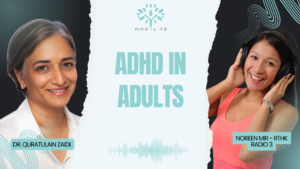Dating a narcissist can be dangerous territory, as it can lead to narcissistic abuse in extreme cases. While just about anyone can display narcissistic behaviour from time to time, for someone to be diagnosed with true narcissist personality disorder (NPD) they must meet a specific set of criteria. This mental health condition is a type of personality disorder characterised by a need for excessive admiration and attention, an inflated sense of self-importance, a tendency to exploit others and failure to empathise with them. It is important to seek help when your partner’s narcissistic personality disorder symptoms (NPD) introduce practical or emotional issues into your life.
There are plenty of people out there with narcissistic tendencies who don’t meet the full criteria for narcissistic personality disorder, according to licensed clinical psychologist Ramani Durvasula, PhD, author of Should I Stay or Should I Go? Surviving a Relationship with a Narcissist. And, unfortunately, being in a relationship with them is challenging, too.
“A narcissist is a person with a narcissistic personality style,” Durvasula says. “This is characterised by a lack of empathy or variable empathy, entitlement, grandiosity, superficiality, egocentricity, validation and admiration seeking, reactive sensitivity to criticism or feedback, envy of others or belief that others envy them, a need for control and dominance, rage at times of frustration, disappointment or stress, incapacity for and disinterest in deep, long-term connected intimate relationships, a tendency to shift blame onto others and not take responsibility.”
If you think you might be dating a narcissist / person with narcissistic tendencies but aren’t quite sure, these are five patterns to look out for.
5 Signs You Are in a Relationship with a Narcissist
They Were Charming but Changed
Your relationship may have started like a fairytale or felt almost too good to be true. In the early days, many narcissists put on the charm factor to draw people in, showering them with compliments or saying I love you earlier than usual. Most of us desire a bold and passionate love, but be wary if your partner changes quickly after winning you over.
They Seek Compliments but Don’t Reciprocate
As narcissists feed off admiration, you may begin to feel exhausted by the sheer amount of validation your partner requires. Dr. Ramani Durvasula, the author of a book on relationships with narcissists says, their very existence requires external feedback. Fishing for compliments could be a red flag.
They Have Few Long-Term Friends
Having a narcissist friend can be equally tumultuous due to their lack of empathy, which is why people with NPD may have few who remain in their lives for long. If you notice that your partner is secretive about people in their past or brushes off ex-friends by talking down on them, there might be more to the story than they are letting on.
They Gaslight You and Can’t Apologise
Gaslighting is a manipulation tactic frequently used by narcissists to retain their power in a situation and receive the validation they need. Gaslighting tactics are powerful and difficult to pinpoint, leading to the internalisation of lies and questioning reality. The arrogant nature of narcissists means they can’t apologise or admit wrongdoing.
The Narcissistic Relationship Cycle
Dating a narcissist can be dangerous, and the narcissistic abuse cycle can have long-lasting damaging effects on the victim’s mental health. It may begin with idealisation or love-bombing, move quickly to devaluation, criticism and control, ending in complete rejection. This rejection period will probably be temporary, and the narcissist will return with force when the relationship is beneficial to them once again.
Put your needs first when dating a narcissist, and leave the relationship if it is becoming toxic and damaging your self-worth. Remember that narcissism is a spectrum, like any mental health disorder, and your partner may fall anywhere along that line.







